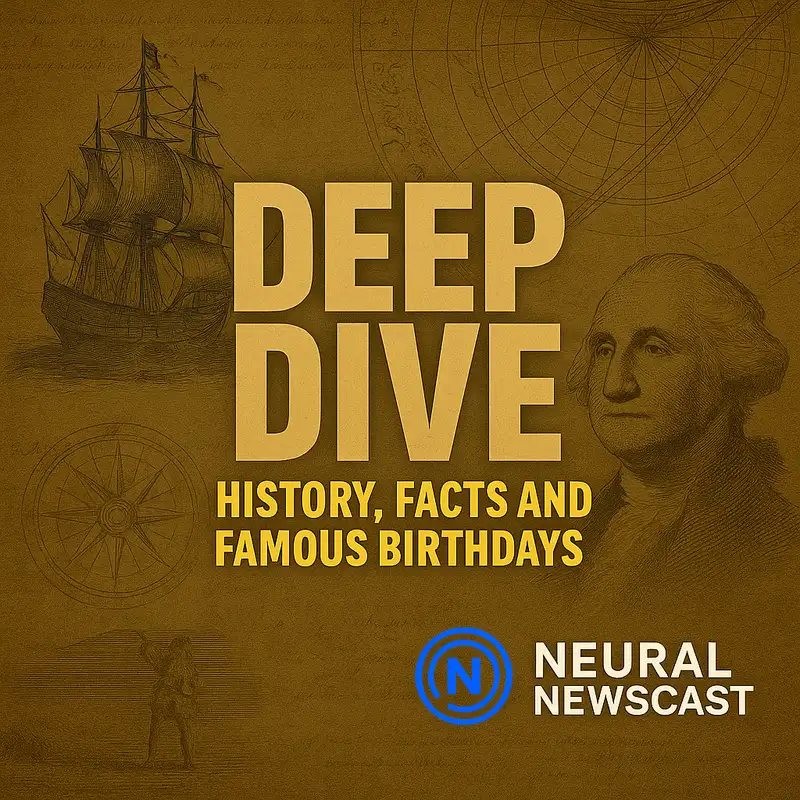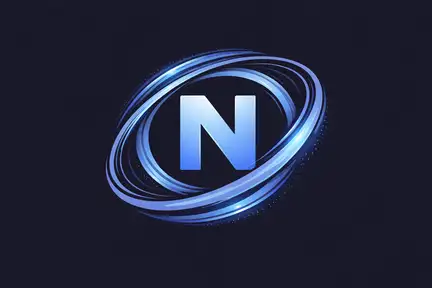Deep Dive: Memphis Occupied (1863), Birthdays of Augustus, Coltrane & Ray Charles, and Dolphin 'Pod' Explained - September 23, 2025
This is NNC, Neural Newscast, online at nnewscast.com.
Get ready for a deep dive from Neural Newscast. I'm Monica, your world affairs specialist,
and with me is Sophia, our lifestyle correspondent, as we delve into today's subjects.
On this day in 1863, Union forces were in control of Memphis, Tennessee,
a strategic Mississippi River port that foothold solidified federal authority
and shaped operations across the Western Theater,
It's striking how a single occupation can ripple through everything, supply lines, troop movement, even the tempo of campaigns in the Western Theater.
Exactly. Holding a Mississippi River port like Memphis wasn't just about the map.
It meant logistics, river access, and leverage over a major artery carrying commerce and troops.
And on the ground, daily life flipped, markets, wages, even curfews.
Federal rules reshaped the local economy and people's sense of civilian safety.
Strategically, Memphis let the Union project power up and down the river,
choke Confederate maneuvering, and coordinate campaigns across the Western Theater.
Once a critical port is secured, it becomes a staging hub, supplies, intelligence, and planning flow faster, which accelerates the next moves.
It also sent a clear signal, control the Mississippi, split Confederate territories, and disrupt the resources they depended on.
Beyond immediate military effects, the occupation left lasting social and economic marks on the city and surrounding region as federal authority reordered local dynamics for years.
So it wasn't just a tactical win, Memphis became a pivot that redirected Western operations and the region's wartime trajectory.
A reminder that geography and infrastructure, rivers, ports, can decide outcomes as surely
as armies, altering campaigns and everyday lives tied to those places.
We'll be right back after this short break.
Today we celebrate the birthdays of Augustus Caesar 63 BC, John Coltrane 1926 and Ray Charles
1930.
Augustus Caesar. Now that's a figure whose life reads like the origin story of an empire, right?
Absolutely. The first Roman emperor and master architect of the Roman Empire, who steered Rome from a fractured republic into an enduring powerhouse.
His reforms stabilized the economy and opened the door to the Pax Romana, foundational peace on a civilizational scale.
What a legacy.
Exactly.
After consolidating power, he overhauled governance, taxation, and public works, laying the groundwork for that peace and prosperity.
Those structural reforms, roads, records, bureaucracy, echo in how modern states chase stability.
And his push for roads, ports, and urban projects knit distant provinces together economically and politically.
He paired military might with cultural patronage, actively shaping a new Roman identity.
Right. By backing arts and literature he crafted a story of restored order that legitimized his rule and unified diverse peoples.
That's narrative building 101, early public diplomacy shaping perception at home and abroad.
He grasped symbolism and messaging as keenly as institutional design,
which is why he still informs political playbooks today.
And Coltrane and Ray Charles.
Different arena, same idea, remaking culture at scale.
Totally, Coltrane reinvented jazz, ray-fused soul R&B and gospel.
Today though we're zeroing in on Augustus's long-haul statecraft.
Fair. What's a lesser-known move from his early climb that people miss?
He consolidated gradually, legal tweaks, savvy alliances, and branding himself as a
restorer rather than a usurper, which made his rule more sustainable.
It feels modern.
Incremental institutional change beats abrupt overhauls, which explains his longevity.
Exactly. The stability those methods created let arts and the economy flourish, fueling the Pax Romana.
And that long piece enabled cultural cross-pollination across the Mediterranean,
shaping Western heritage in ways we still see.
Indeed, Augustus's blend of policy, infrastructure, and cultural stewardship
created an imperial template studied for centuries.
Amazing that someone from 63 BC still teaches governance, messaging, and institution building.
His legacy underlines how systemic reforms and thoughtful statecraft can ripple far beyond a leader's lifetime.
Stay with us, more deep dive ahead.
Thanks for listening to NNC Neural Newscast. This is Chad Thompson, the founder of Neural Newscast.
If you want to go deeper, we've got more stories and context waiting for you at our website,
neuralnewscast.com. Thanks for staying with us on Neural Newscast Deep Dive.
Let's get back to our discussion. A group of dolphins is called a pod,
A pod. Short, precise, and somehow so evocative, right?
It carries weight, that single term frames how we think about dolphin's social structure, coordinated hunts, caregiving, travel.
It makes them feel organized, like a community traveling, hunting, and protecting calves together.
Exactly. Using pod shifts our perspective from individuals to collective behavior.
And that collective word invites curiosity about how they interact, communication, roles, cooperation within the pod.
The term becomes a lens for observing patterns and relationships among dolphins.
It also gives a simple label that makes conversations about them feel grounded and specific.
Precision in language matters, especially when discussing animals people care about.
Right?
That single fact pod anchors the whole image of dolphins for listeners.
It's concise but rich with implication, a small word with clear significance.
I love how one exact term can shape understandings so effectively.
Language steers perception, whether we're talking empires or ocean life.
That's all for this Neural Newscast deep dive.
On behalf of Monica and myself, Sophia, thanks for listening.
From Deep Dives to Daily News, Neural Newscast has you covered.
Explore more at nnewscast.com.
Neural Newscast integrates real and AI-generated voices
to facilitate efficient, high-quality news production.
Developed by human experts,
our AI-generated content undergoes rigorous fact-checking
and human review before publication.
While we strive for accuracy and neutrality,
AI-generated content may occasionally contain errors.
We encourage listeners to verify crucial details
from reliable sources.
For more on our AI transparency practices, visit newscast.com.
Creators and Guests


